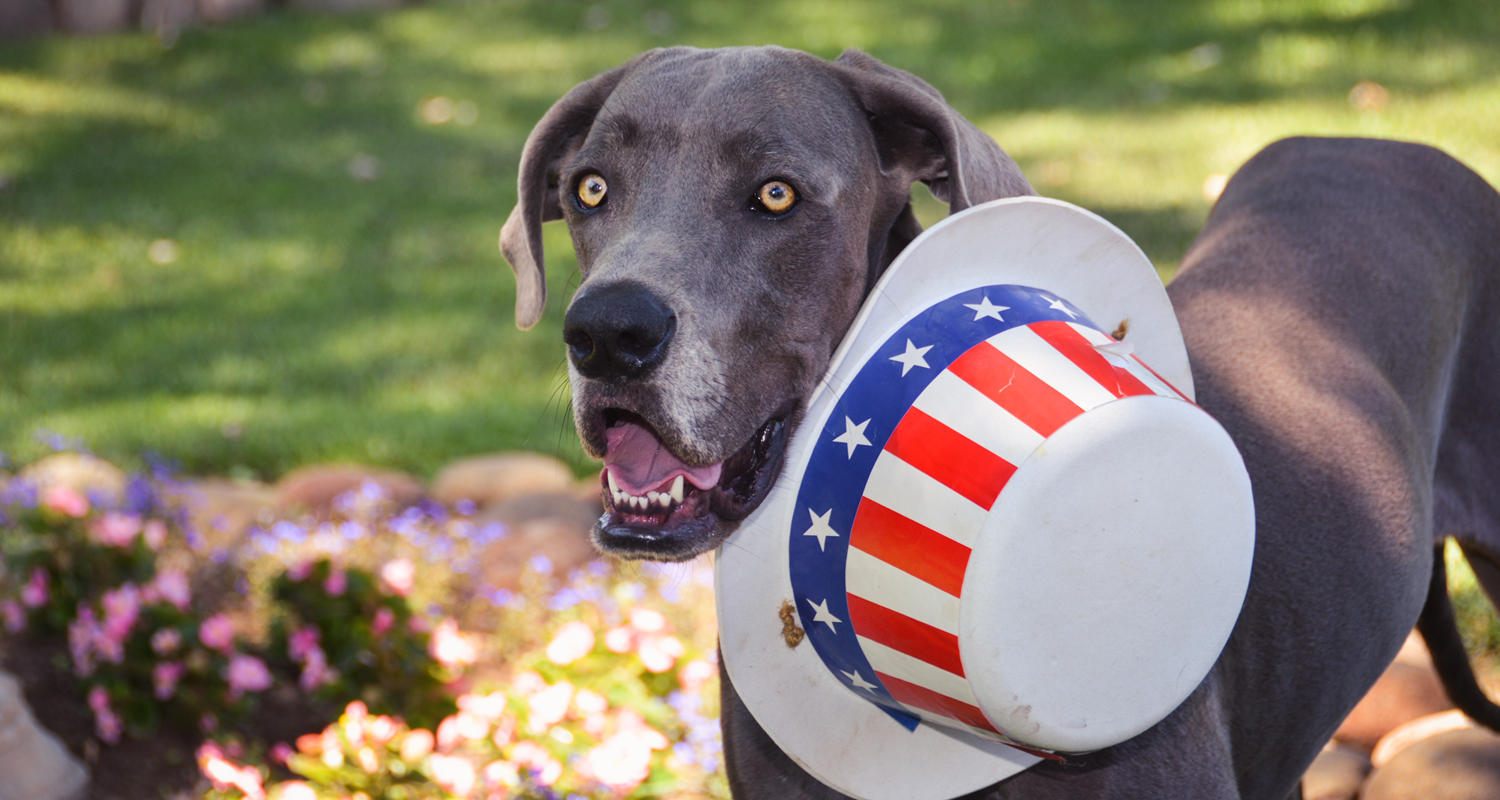When fireworks boom, dogs bolt. Here’s how to stop them.
Helpful tips to keep your pets safe during the holiday

It happens every summer: Americans celebrate the birth of the nation by setting off fireworks. Dogs hear the explosions and think it’s the end of the world.
“Fireworks are often frightening for pets. They are so loud they sometimes vibrate the building or ground, are entirely unexpected and unexplained, and evolutionarily, sounds like that are threatening” because of their similarity to lightning strikes, says M. Leanne Lilly, an assistant professor – clinical in Ohio State’s College of Veterinary Medicine.
“Put together you have the perfect recipe for creating profound fear, or even phobias and a host of associated behaviors. For some pets, it really does feel like the world is ending,” she adds.
Between 25 and 50% of cats and dogs experience noise aversion, Lilly says.
No wonder so many dogs run away from home in panic around the Fourth of July. They jump over or slide under the backyard fence, or crash through a window and run into traffic. Leashed dogs being walked sometimes slip out of their collars and race off when spooked by neighborhood fireworks launched from people’s yards. They’re often caught by a dog warden and brought to the local shelter.
But there are steps you can take to prevent all that from happening. Here are some tips to keep your pup safe during Fourth of July fireworks:
1. Keep your dog indoors.
And make sure your yard fencing is secure, so your dog can’t climb over or under, or break out of the gate.
2. Seriously, indoors. Don’t chain or tether your dog outside.
A panicked dog could race in circles trying to escape, become tangled and then strangled. Lilly also recommends a second barrier, like flexible pens at doors, especially if people will be frequently coming and going between the house and outside.
3. Pay attention to your dog’s behavior.
There are several potential signs that your dog is upset by fireworks. Lilly recommends watching out for: panting (even when it is not hot); refusing to settle; hiding; urinating or defecating; drooling; dilated pupils; trembling or tucking its tail; and destructive activities, such as digging.
4. Time your walks.
Take your dog out for a potty break before dusk, the time when impromptu backyard fireworks are likely to start up. Walk your dog on a leash in the morning, when backyard fireworks are less likely, and make sure the collar fits snugly.
5. Don’t punish your dog for being upset by the noise.
“Even stern words or corrections can make this stressful time more challenging for pets,” Lilly says. Trying to reassure your dog in a panicked voice won’t help it feel better, but petting can help if it usually comforts your pup.
6. Consider pharmacological support.
Some medications and supplements can help ease dogs’ anxiety. Lilly suggests reaching out to veterinarians well in advance of the Fourth, since some medications take weeks to start working and for any side effects to become apparent.
7. If your dog does run away …
Ideally, all dogs should be licensed and vaccinated — micro-chipping also is encouraged — but at the very least, make sure your dog wears a collar tagged with your phone number. That will help get your dog returned to you if the animal has run away.